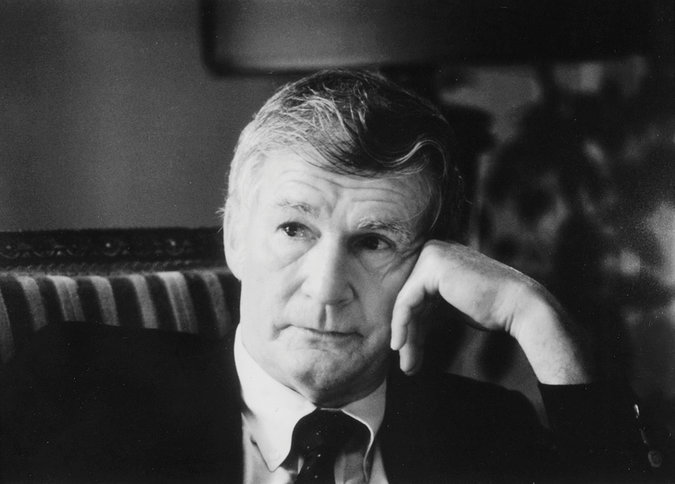Remembering Forrest McDonald
Though modern Americans spend many years as students, most will readily admit that a good teacher is rare and thus memorable. I had the good fortune to have a great one in Forrest McDonald, who passed away last month at the age of 89. Others more qualified than I can speak of his tremendous scholarly achievements; and his personal friends, I am sure, can praise his virtues. I wish to honor Professor McDonald as a teacher. He was great because of his devotion to the discipline of history and his generous spirit.
McDonald understood that the discipline of history, while difficult, allowed one to escape “the provincialism of the present,” as he said in his 1990 speech accepting the Ingersoll Foundation’s Richard M. Weaver Award for Scholarly Letters. The goal of any discipline, be it the disciplining of children or the controlling of one’s appetites or inclinations, is to shape one’s mind and behavior toward a specific goal. The study of history disciplines the mind to think in certain ways. It demands evidence to support assertions and sifts through various narratives critically. The historian must appreciate complex human motives and tolerate frequent disappointment in human nature.
Thus for him, historical investigation decentered the individual. Each individual tends to view the world as if he is in the center of things. The discipline of history, by exploring the vastness and complexity of the past, teaches humility.
As a teacher at the University of Alabama, he exemplified this. Usually in class, he would sit on a table in the front of the room, take out an index card with a few scribbled words, and, with an almost mischievous gleam in his eyes, begin telling a story. The story derived from his vast knowledge. He lectured just as he wrote his numerous books and articles, with verve and precision. He would quote sources, tell anecdotes he picked up reading 18th century newspapers, and craft a compelling narrative of events. His powers of recall were tremendous. He rarely mentioned either himself or current events. Instead, he tried through his lectures to immerse his class in the world that he knew and loved so well, that of the early American republic.
A sign of his devotion to his discipline, as well as a tool of it, was Professor McDonald’s immersion in the primary sources. He frequently remarked that one had to learn how to crawl into another’s skin, so to speak. He read all kinds of things. I remember conversations with him about reading Blackstone, Polybius, Harrington, Locke, Montesquieu, and a host of other writers known to the Founders. He learned Latin, he once said, so that he could read the classics the way the Founders had.
One time I asked him a question about Alexander Hamilton, his favorite, of course. After a long, detailed, and precise answer to my question, he smiled and remarked that sometimes he thought that he was Hamilton because he had spent so much time reading his papers and trying to think as Hamilton had thought. I chuckled, in awe. This devotion of his was a stellar example to his students. He based his understanding of the past less on interpretative fads than on his practice of reading every primary source he could access.
Professor McDonald was remarkably generous to his students with his most valuable resource—his time. He always took time to answer questions, however basic or absurd they might be. He also spent much time criticizing writing. Every assignment I submitted to him came back to me within a week. At the same time that he was so prompt, he marked up the papers extensively, in pencil with his tight script. Once you had the graded paper in hand, he would then take a moment to discuss it with you. The upshot of these encounters was usually that you ought to read more, and argue more clearly.
Occasionally, Professor McDonald taught a seminar on writing history in which students exchanged writing samples, and the class spent one period critiquing each paper. When my turn came, he read aloud two full pages from my paper and pointed out that I had used the verb “to argue” over 10 times. With a smile, he remarked that I must be highly argumentative. I never forgot the lesson. I cringe now over the time he took away from his own valuable work to read my juvenile thoughts and historical observations.
Forrest McDonald modeled devotion to the discipline of history and generosity to his students. He told me once that he gave time to his students as thanks to his own professors who had shaped him. He could not repay them, so, as the saying goes, he “paid it forward.” He was one of the few great teachers I was blessed to have. Teaching history in the way he did, and practicing his craft the way he did, he bestowed upon us gifts that we are obliged to pass on to our own students.
Thank you, Professor. Requiescat in pace.
